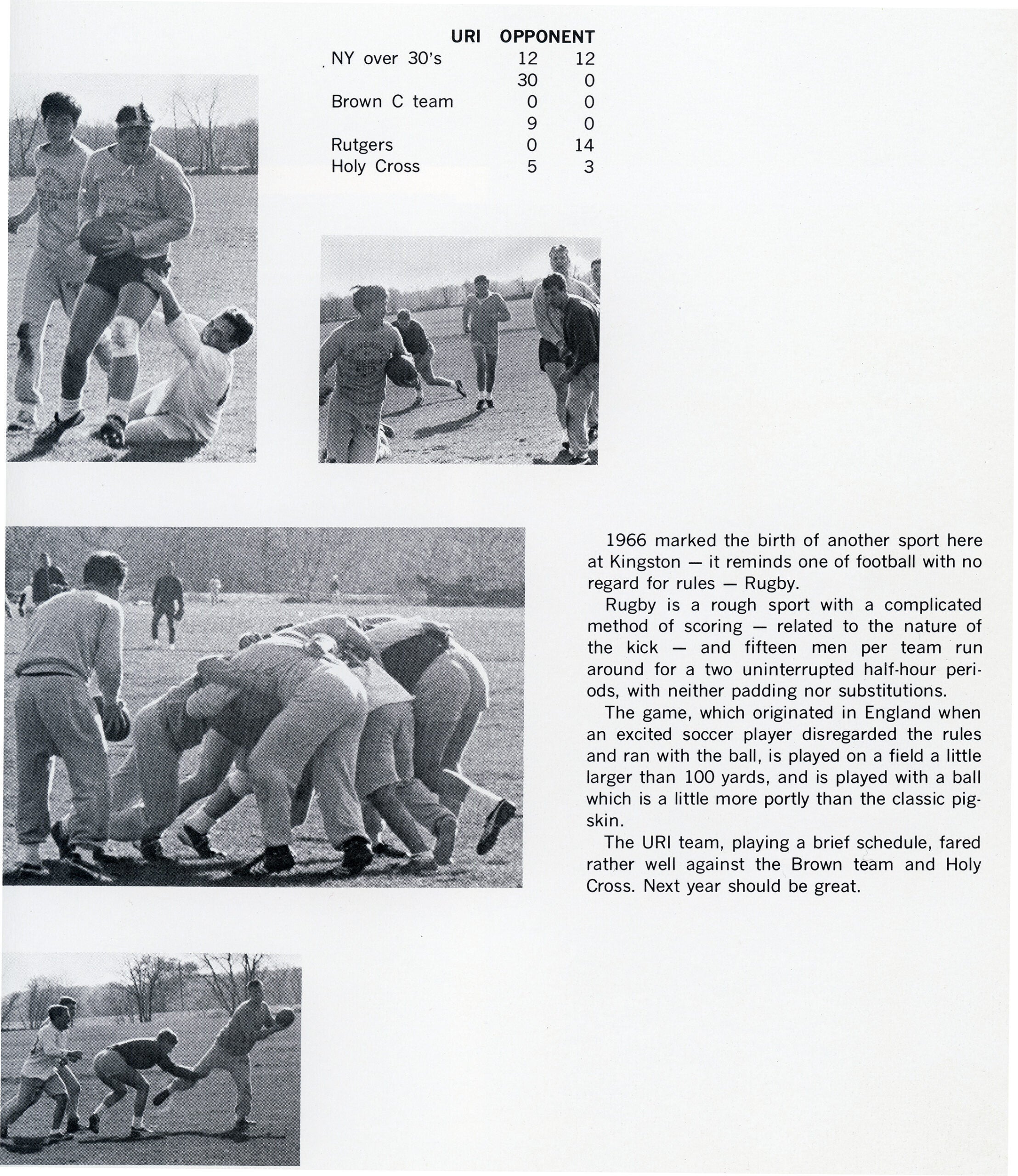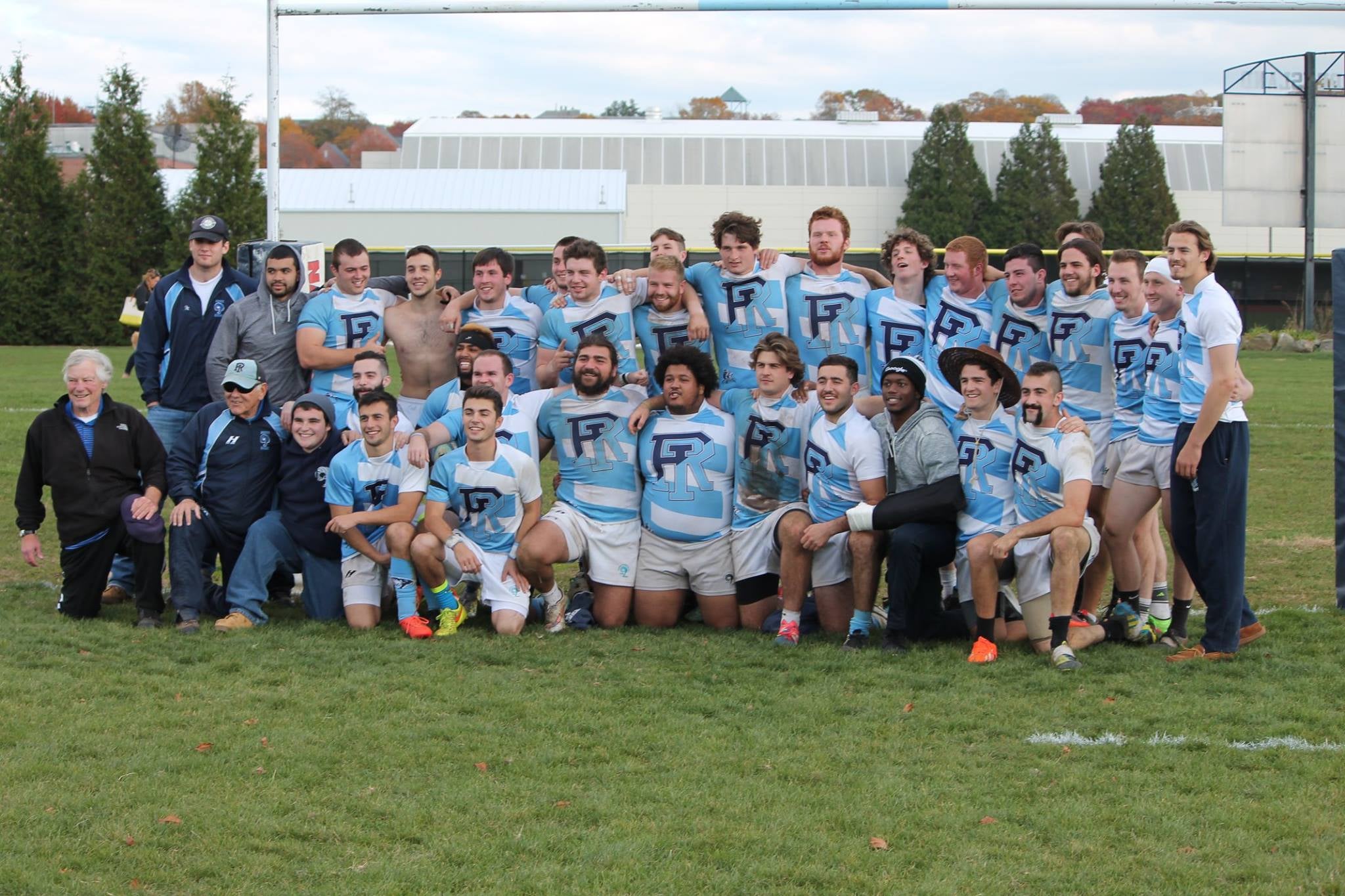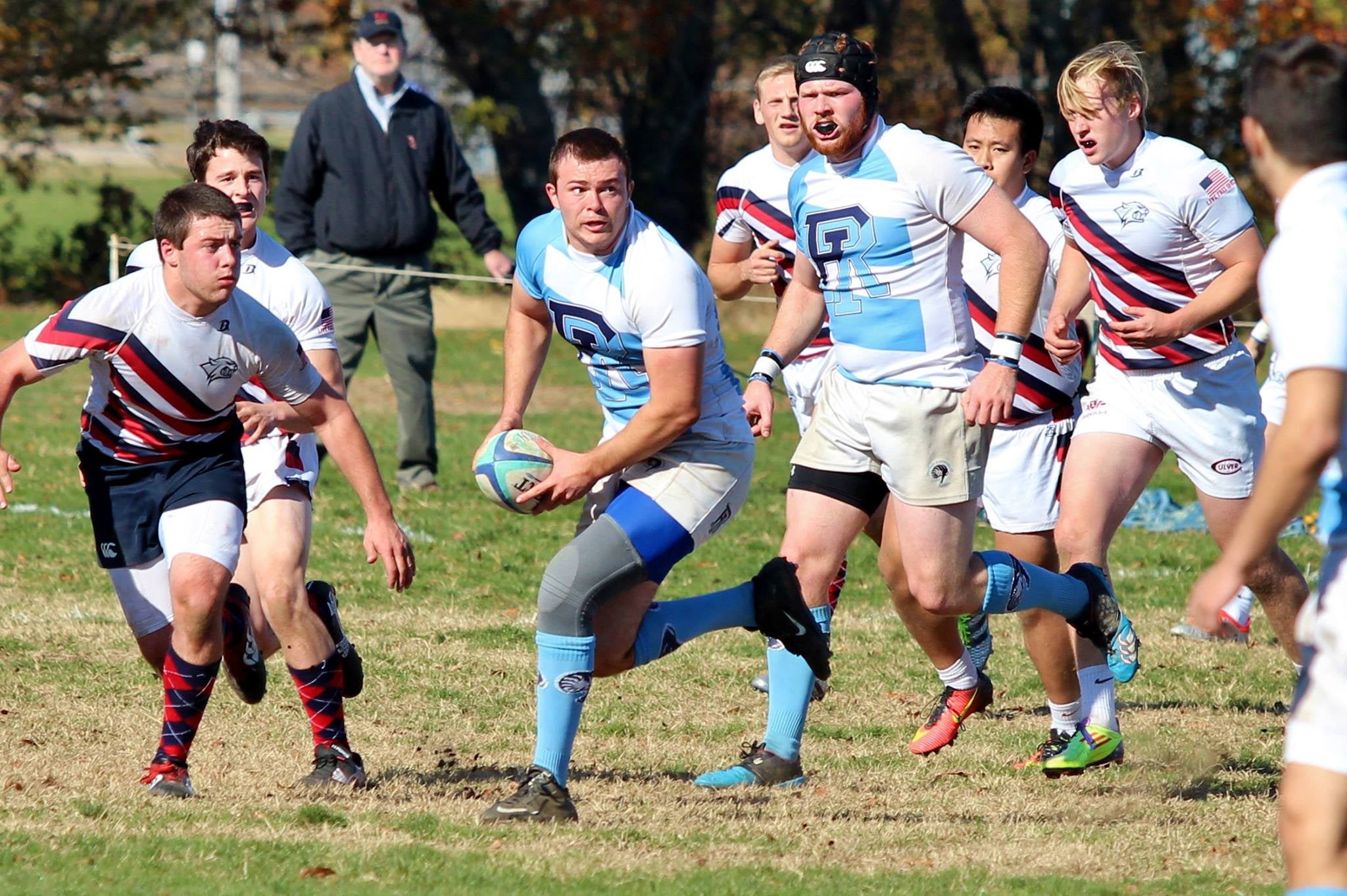KINGSTON, R.I. – April 26, 2017 — The game that took place on the University of Rhode Island athletic fields in the fall of 1966 reminded spectators vaguely of American football, but it looked decidedly different.
Players wore no pads and the scoring system required them to place the ball on the ground in the end zone to score a “try,” or drop kick it through the uprights during play. The game, born in England and adopted here in Kingston for the first time, was rugby.
Fifty years later, the URI men’s rugby team is celebrating that first season with an alumni game and reception Saturday, April 29. The game will be held from noon to 2 p.m. at the rugby fields on the Kingston Campus and is free and open to the public. The reception will be held from 3 to 5:30 p.m. at the Narragansett Theatre, 11 Pier Market Place, in Narragansett. Cost is $25 for alumni and supporters and $5 for current team members, and it includes appetizers and a cash bar.
The squad has held the alumni game in recent years as a means of raising funds to support the team’s growing travel expenses, but this year is different.
“If we get any donations out of it, that’s great, but this is really meant to be a gratuitous thank you to the alumni who helped make this program possible and bring it to where it is today,” said Tyler Inkley, club president and a senior ocean engineering major from Warwick.
 That inaugural season saw Rhody go 3-1-2 in an abbreviated schedule, with victories over Brown, Holy Cross and the New York Over 30s.
That inaugural season saw Rhody go 3-1-2 in an abbreviated schedule, with victories over Brown, Holy Cross and the New York Over 30s.
Twenty years later, the 1986 Rams were competing in the New England Championships, their greatest success to that point in team history.
URI advanced to the USA Rugby Men’s Division II College National Championship in the fall of 2015, where it fell a victory shy of reaching the Final Four.
While still competing in Division II, the Rams had a strong showing in the largest Division I rugby tournament on the East Coast last spring when they competed in the 2016 Beast of the East tournament, losing only to four-time champion Massachusetts while defeating other division foes Connecticut and U.S. Merchant Marine Academy-Kings Point.
With burgeoning confidence, the Rams moved up to the club sport’s highest level in Fall 2016, its semi-centennial season, and the Rams went a combined 6-7 during the fall and spring sessions.
“It’s really cool to see where we came from in 1966 to becoming a top-5 Division II School, and now moving into Division I,” said senior captain Anthony Kennedy, an ocean engineering major from Norton, Mass. “We’ve had success in the past few years and that’s made us more competitive. And the more competitive we’ve gotten, the greater our success. They’ve gone hand-in-hand.”
 With that success has come greater participation, and the Rams now boast a 79-man roster, the largest of any club sport. Inkley and Kennedy said that while the team has focused on competing hard against the best teams in the sport, the social aspect that bonded the original teams together so too bonded these Rams.
With that success has come greater participation, and the Rams now boast a 79-man roster, the largest of any club sport. Inkley and Kennedy said that while the team has focused on competing hard against the best teams in the sport, the social aspect that bonded the original teams together so too bonded these Rams.
“It’s fun to see the different atmosphere around the team throughout the generations,” Inkley said. “The older guys talk about rolling out kegs of beer at halftime, whereas now we’re more competitive. But there’s a big social aspect to it, too.”
“Absolutely,” Kennedy agreed. “My closest friends here at URI are teammates. The bonds we forged through competition are a lot stronger than most friendships. I’ll always cherish the memories I’ve made with them, both on and off the field.”
Inkley and Kennedy both acknowledged the influence the older players had on them when they were starting out at URI, and hoped they would have a similar influence on the players who are coming up behind them.
“We always had strong senior leaders, and they helped us get to this level,” Kennedy said.
“At the same time, we’ve always had freshmen and sophomores who wanted to grow into that role,” Inkley said. “We hope the program continues to get bigger, badder and better.”

